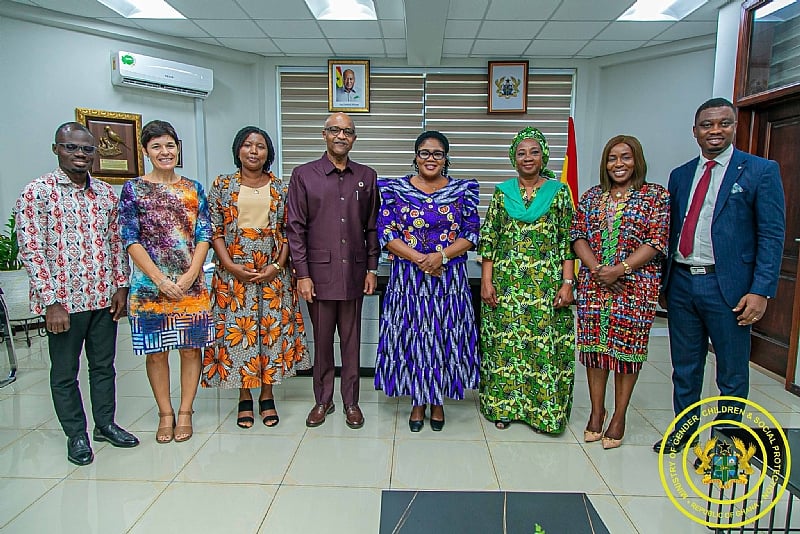The Ministry of Gender, Children, and Social Protection in Ghana is actively pursuing a comprehensive social protection system designed to address the needs of vulnerable populations, including women, children, the elderly, and persons with disabilities. This commitment is reflected in the recent Cabinet approval of both the Social Protection Bill and the Domestic Violence Bill, landmark pieces of legislation poised to revolutionize the nation’s approach to social welfare. The Social Protection Bill aims to establish a robust and sustainable framework for existing social programs, while the Domestic Violence Bill seeks to strengthen legal protections and responses to gender-based violence. These legislative advancements demonstrate the government’s dedication to translating national policies into tangible improvements in the lives of its most vulnerable citizens. This proactive approach is further underscored by the Ministry’s active collaboration with international development partners like UNICEF.
UNICEF’s Representative to Ghana, Mr. Osama Makkawi Khogali, commended the Ministry’s leadership in pioneering the Integrated Social Services initiative, a program designed to streamline and improve the delivery of crucial services to vulnerable families and children. This integrated approach focuses on coordinating social protection, health, education, and child protection services, ensuring a holistic response to the multifaceted challenges faced by these populations. Mr. Khogali’s acknowledgment of Ghana’s ratification of key international protocols and instruments related to child rights highlights the nation’s commitment to aligning with global standards for child welfare. This proactive engagement with international frameworks reflects a commitment to ensuring that children’s rights are protected and promoted at the highest levels.
The collaboration between the Ministry and UNICEF underscores a shared commitment to poverty reduction and vulnerability mitigation, mirroring the overarching national agenda championed by President John Dramani Mahama. This aligned vision emphasizes the importance of strategic partnerships in achieving ambitious national goals. The meeting between the Minister and the UNICEF delegation addressed a wide range of pressing issues, including child bullying in schools and communities, a critical area of concern requiring comprehensive intervention strategies. The discussion also focused on expanding the reach of the Livelihood Empowerment Against Poverty (LEAP) program to include more vulnerable pregnant women, a crucial step in ensuring maternal well-being and reducing child poverty.
The LEAP program plays a pivotal role in Ghana’s social protection system, providing cash transfers to extremely poor households, with a particular focus on those with orphans and vulnerable children, the elderly, and individuals with severe disabilities. Expanding the program to encompass vulnerable pregnant women represents a significant step in addressing the specific needs of this population group and ensuring access to vital resources during a critical period. This expansion will contribute to improved maternal health outcomes and provide a much-needed safety net for pregnant women facing economic hardship.
Another critical aspect of the discussions centered on strategies to integrate children not currently registered in the national birth registry into the social protection targeting system. This inclusion is crucial for ensuring that no child is left behind and that all vulnerable children have equitable access to essential services and support. The lack of birth registration can create significant barriers to accessing social services and opportunities, effectively rendering these children invisible to the system. Developing effective strategies to identify and register these children is a critical step in ensuring their inclusion and protecting their rights.
The Ministry’s commitment to building a resilient and inclusive social protection system is evident in its proactive approach to addressing key challenges, including the expansion of the LEAP program, combating child bullying, and ensuring the inclusion of unregistered children in social protection initiatives. The collaboration with UNICEF and the focus on aligning with international protocols and national goals further solidifies this commitment. The forthcoming Social Protection Bill and Domestic Violence Bill represent critical steps toward creating a robust legal and institutional framework for social welfare in Ghana, paving the way for a more equitable and inclusive society where no one is left behind. This comprehensive and multi-pronged approach reflects a dedicated effort to address the complex challenges faced by vulnerable populations and promote a brighter future for all Ghanaians.


